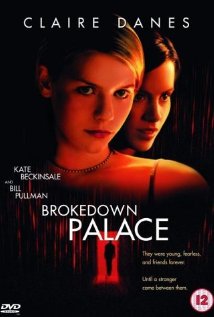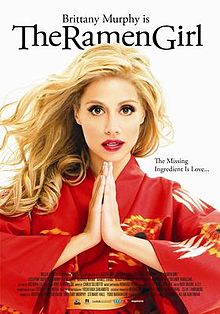Tags
assasination, Catholic, cinema, death penalty, ethnic cleansing, faith, holocaust, killing, mass killing, ministry, movie, movie ministry, Nicole Kidman, Sean Penn, The Interpreter
03 Saturday Nov 2012
Posted in Drama
≈ Comments Off on The Interpreter
Tags
assasination, Catholic, cinema, death penalty, ethnic cleansing, faith, holocaust, killing, mass killing, ministry, movie, movie ministry, Nicole Kidman, Sean Penn, The Interpreter
03 Saturday Nov 2012
Posted in Drama
≈ Comments Off on Brokedown Palace
Tags
Brokedown Palace, catechesis, Catholic, cinema, Claire Danes, Drama, faith, friend, Kate Beckinsale, ministry, movie, movie ministry, reconciliation, Sacrifice, Thailand
 One of my perennial favs in terms of Movie Ministry or Cinema Catechesis is the 1999 flick Brokedown Palace. It seems that not a lot of people have heard of this film that stars Claire Danes, Kate Beckinsale and Bill Pullman, with even a few appearances by Lou Diamond Phillips. I promise, it’s worth taking a look at – and there’s enough suspense, that it’s not to “chick flicky” for most guys.
One of my perennial favs in terms of Movie Ministry or Cinema Catechesis is the 1999 flick Brokedown Palace. It seems that not a lot of people have heard of this film that stars Claire Danes, Kate Beckinsale and Bill Pullman, with even a few appearances by Lou Diamond Phillips. I promise, it’s worth taking a look at – and there’s enough suspense, that it’s not to “chick flicky” for most guys.
It starts off simple enough, two girls graduate high school and head out for their senior trip. Darlene (Beckinsale) is “the good one” and the other, Alice (Danes) of course, “the bad one.” This movie is about trust & true friendship. First, the two girls, supposedly headed to Hawaii for their senior trip, decide to switch gears and head off to Thailand, in search of the exotic and thrilling. But, the girls learn that nothing is as it seems.
Which girl was guilty – even if unknowingly so? Many make assumptions of who is actually to blame. Was it the bad one? Was it the naive one? Or, was it neither of them, but the work of some con artist? Is their lawyer (Pullman) a help or a hurt?
We work and work to try to figure that out, but does it matter – especially when both girls are paying the price? You never know quite who to trust in the movie. Sometimes you think all the characters are playing each other. But, ultimately it doesn’t matter. There is no such thing as “reasonable doubt” in Thailand, and the time will be done, regardless.
So, what would you do if you and your best friend were in prison together? What would you do if you thought it was your friend’s fault you were there? What if you’d been the one tricked? Would you still care?
So now that we’ve been made to think about the “what ifs”, what lessons do we learn here?
1. Don’t lie! The girls lied about where they were going, making it harder to get help once they realized they were in trouble. They snuck into a hotel and lied about being guests there – which got them caught, and put in contact with a guy we later learn is a drug trafficker, despite his incredibly charming appearance who obviously lies to them.
2. Be on guard. It may sound silly – but at so many turns the girls might have avoided some of the punishment they got. But, they think they know it all, are so busy looking for aventure, that they are careless.
3. Know who your friends really are. Those that are charming may look polished and talk smoothly, but are they going to be there for you when you need it? Who are the most important people in your life? Are they good influences or bad? Don’t get me wrong, as this movie portrays, there isn’t always a clear line here. Sometimes we need someone who’s a little wild in our lives – sometimes we’re the wild ones. How do those closest to us help us grow, or hold us back?
4. One thing I applaud the girls on, most especially our bad girl Alice, is in looking out for a friend. Darlene may be “the good one” but she appears to be quite naive and barely able to watch out for herself in this strange place. The two girls have a spat over a boy, but still it appears that Alice is more concerned about her friend than anything. Alice is the strong one and is constantly trying to help Darlene deal with the mess they’re in; they are picked on by guards and prisoners, Darlene’s father shows up and reiterates to Alice what a horrible person he thinks she is and how he blames her for this situation his daughter is in and Darlene gets very ill. Even at a point when Darlene isn’t speaking to Alice, Alice stays with her and shows she’s willing to offer the biggest sacrifice.
What parallels can you make to scripture with this one – self-sacrifice, for sure. It’s hard to really discuss this aspect without ruining the ending for you. Which I really don’t want to do. You may already be able to guess what happens by what I’ve said and not said here. But, it’s a good movie, suspenseful, with a great message, not just about trust, but also friendship.
For more information check out http://www.imdb.com/title/tt0120620/
26 Friday Oct 2012
Posted in Romantic Comedy
≈ Comments Off on 50 First Dates
Tags
50 First Dates, Adam Sandler, be yourself, catechesis, Catholic, cinema, Comedy, Conversion, Drew Berrymore, Hawaii, Love, ministry, movie, movie ministry, Sacrifice
 50 First Dates is one of those movies I wanted to hate, but for whatever reason, I couldn’t. I’m not much of and Adam Sandler fan. I really don’t care for Rob Schnieder. The humor is juvenile and silly, but what girl wouldn’t be totally impressed by a guy who works to make her fall in love with him every day?
50 First Dates is one of those movies I wanted to hate, but for whatever reason, I couldn’t. I’m not much of and Adam Sandler fan. I really don’t care for Rob Schnieder. The humor is juvenile and silly, but what girl wouldn’t be totally impressed by a guy who works to make her fall in love with him every day?
So we start off getting to see Sandler’s character, Henry Roth, as the ultimate player. He only dates tourists and Hawaii is obviously full of them. But ultimately, Henry wants to sail up to Alaska to study walruses.
On one of his test drives with his work-in-progress boat, he gets stuck and finds himself waiting for help in a little cafe where he meets Drew Barrymore, who plays Lucy. Their first meeting seems magical and they spend quite a while talking, all seems to be going well. They part ways but Henry can’t get Lucy out of his mind.
So, Henry goes back to the cafe and tries to talk to Lucy – who has a MUCH different reaction than she did before. The cafe owner tells Henry about Lucy’s condition in that she cannot retain any new memories. Each night when she sleeps, it erases the day. While this is the PERFECT out for Henry, he just can’t stay away. So, he goes to the cafe each day and tries various things to get Lucy to talk to him again.
Lucy’s father & brother recreate the day of Lucy’s accident down to the last detail… the football game that was on TV that day, the birthday present they re-wrap each night so it can be given again, a whole stack of newspapers from the day – they cover every base they can. However, through a series of events, their game plan gets changed and they (with Henry) try a new strategy.
As much as Lucy can’t retain memories, certain patterns start to form and even her Dad can see the good Henry has done for her. But, Lucy fears her condition is keeping Henry from doing what he really wants and so she erases him from her life.
So, what do we learn from 50 First Dates? Well, a few things…
1. Conversion is possible. Henry was a player, but his feelings for Lucy made him better. And, shock of all shocks, SHE DIDN’T TRY TO CHANGE HIM!! Henry came to realize on his own how important his connection to Lucy was and all those hot toursistas just didn’t have the same appeal. But that change needs to come from within. If Lucy had tried to change Henry, we wouldn’t have seen his conversion. He might have done what she wanted in hopes of sexual rewards, but it would not have been a true conversion, and when she let him go, he would have happily moved back to what he was doing before meeting her.
2. What we do does affect others, even if we don’t see it, and many times even if they don’t acknowledge it. So, Lucy’s dad points out to Henry that she only sings on the days that she runs into Henry. Then later we see that she’s been artistically re-creating images of him, even though she claims she doesn’t know who he is. Even though she doesn’t remember him consciously, she does remember him subconsciously. How often have you walked away from an exchange with someone and kicked yourself for what you didn’t say, or read more into it than you’d previously thought was there? Everyone has those sort of experiences. Most everything affects us more than we realize – so be careful.
3. Laugh at yourself. Just about every character has certain traits that you can’t help but laugh at. There’s even a few jokes about Lucy’s “broken head.” We can’t take ourselves too seriously.
4. Fall in love every day. I think any and every relationship needs at least a little of this. There is always a certain “ebb and flow” to a relationship. We need to remind ourselves on occasion why we stay with our certain someone and maybe that’s why we celebrate anniversaries and Valentines Day as prescribed times to spend extra time and remind us to fall in love again. We really need to take a lesson from Henry here and work a little harder at this. And hey, most of us have the advantage of having partners who remember the things from the days and weeks before, so this should be significantly easier for the average joe! 😉
Much of the humor is quite crude and I find it sad that the filmmakers seemed to need so much of it with such a great story. If you decide to show this flick, you might want not want it to be a co-ed audience to prevent any awkwardness. However, most everyone has heard this type humor at school, work or somewhere, so I’ll let you judge what your comfortable with.
Want to learn more about the movie, check out http://www.imdb.com/title/tt0343660/
God Bless!
21 Sunday Oct 2012
Posted in Comedy
≈ Comments Off on The Ramen Girl
Tags
Brittany Murphy, catechesis, Catholic, cinema, Comedy, Healing, Japanese, John the Baptist, language barrier, ministry, movie, movie ministry, prayer, Ramen, reconciliation, Sacrifice, talking to God, The Ramen Girl
 Sometime last week, my husband and I decided to try out an old Brittany Murphy flick The Ramen Girl. On the surface, it’s about a girl, Abby, who follows her boyfriend to Japan – who then leaves her there.
Sometime last week, my husband and I decided to try out an old Brittany Murphy flick The Ramen Girl. On the surface, it’s about a girl, Abby, who follows her boyfriend to Japan – who then leaves her there.
Hurt and confused, Abby stumbles into the Ramen shop across the street. The owners, Maezumi and his wife, think she is homeless or crazy so they feed her in the hopes that she’ll go away. But, somehow, the Ramen fills more than her belly, as she finds consolation in it. She goes back the next day, and the Ramen makes even the saddest patrons laugh. So she decides that she wants to learn the art of Ramen so that she can bring that joy to others.
When I first sat down to write this post, I had no idea that I could pull much out of it. It seems like a pretty straight-forward “fish out of water” type story. However, as I started writing, I was amazed at how deep it really could be. Imagine that the Ramen Shop owner, Maezumi, is Jesus and Abby becomes a disciple, so to speak. So, in looking at this film through the lens of Catechesis, what can we learn?
1. We are called to “pick up our cross and follow Jesus.” No one ever said it would be easy, or that at points we wouldn’t feel alone. So, while what got Abby to Japan might have been less than honorable, she passes up the easy road and it’s the challenges she faces that make her stronger in the process. You might even take the leap that the boyfriend was like a shady John the Baptist – and leads Abby to Jesus, although indirectly. So, Abby follows her boyfriend, but becomes a disciple on a journey that takes her much farther than the relationship with the boyfriend would have ever been. And I think we can all agree that the boyfriend isn’t fit to untie Maezumi’s sandals!
2. When she sets her mind to learn Ramen, Maezumi gives Abby a LONG list of chores. From washing dishes to scrubbing toilets, cleaning tables and washing windows, she learns the value of work, although she isn’t quiet about her distaste for it. For Maezumi, it’s the basics. It’s those things that don’t seem to be related to the end goal, but are actually foundational building blocks. You can have the best food in the whole world, but if the surrounds are dingy, its unlikely people will give it the time of day. So maybe it’s those prayers or scripture passages we don’t want to memorize, maybe it’s basic teachings we don’t think we agree with, but they are all part of the big picture. They all are ingredients in our Ramen.
3. There is a huge language barrier between Abby and Maezumi. With the help of a dictionary and the occasional interpreter they muddle through, but it is hard, frustrating, and the series of exchanges, though heated, can be quite funny. There’s a lesson here though. You can take it at face value: a stranger in a strange land. However the thing that really pops to mind is that frustration and difficulty we sometimes feel talking to God. We find ourselves on one side spewing out what we think we need and what we expect from Him, all the while feeling that He doesn’t really understand us and often wondering if he’s even listening. Then on the other hand, how often is He trying to talk to us, but we’re too busy trying to get our point across to listen to Him? So check out those exchanges… how do they get resolved or do they?
4. We also learn that all the choice ingredients mean nothing if there’s there’s not a piece of ourselves in it. Maezumi can’t put his finger on what is missing from Abby’s ramen, so he takes her to his mother. Now, this is a deviation from our analogy of Maezumi as Jesus, because we don’t ever see Jesus asking Mary for advice, but he does entrust us to her. “Son, behold your mother. Mother behold your son.“ Yet even that is stretching it for this one, so rather than try to rationalize any further, we’ll get to the point of the exchange: We can talk the talk, but if our hearts aren’t in it, what are we doing it for? We must believe it and put ourselves out there. Because ultimately, aren’t we all looking for the Grand Master’s blessing?!
5. Another point is you can make with this movie is the reconciliation Abby brings about for Maezumi. You see, Maezumi raised his son teaching the art of ramen. However, his son rejects it, despite his great gifts, to be an ITALIAN chef! Maezumi has such a difficult time with this decision. And, in a very un-Jesus-like fashion, Maezumi turns his back and holds in the hurt. In an effort not to ruin it, although it is a minor part of the movie, I’ll hold back the hows and whys here. But hopefully it inspires us to reach out a loving hand to someone we need to reconcile with.
6. **Spoiler Alert!!!** The last point for me is that once Abby has mastered the art of Ramen, she doesn’t stay in Japan. She moves back home, but takes this gift and shares it with others back home in New York. It appears that her place is booming and business is good. Therefore, our lesson is that called to share our gifts with the world, spread the good news of Jesus. I sort of wish I got to see more of how she continues on, but, that is left to our imagination.
Be forewarned, this film does have some scenes depicting alcohol use and Abby does have a brief romance including a bedroom scene. But, if memory serves, it does deserve the PG-13 rating, but isn’t embarrassing enough to worry about showing in a group setting assuming they’re all at least 13.
God Bless!
For more information on the movie, check out http://www.imdb.com/title/tt0806165/